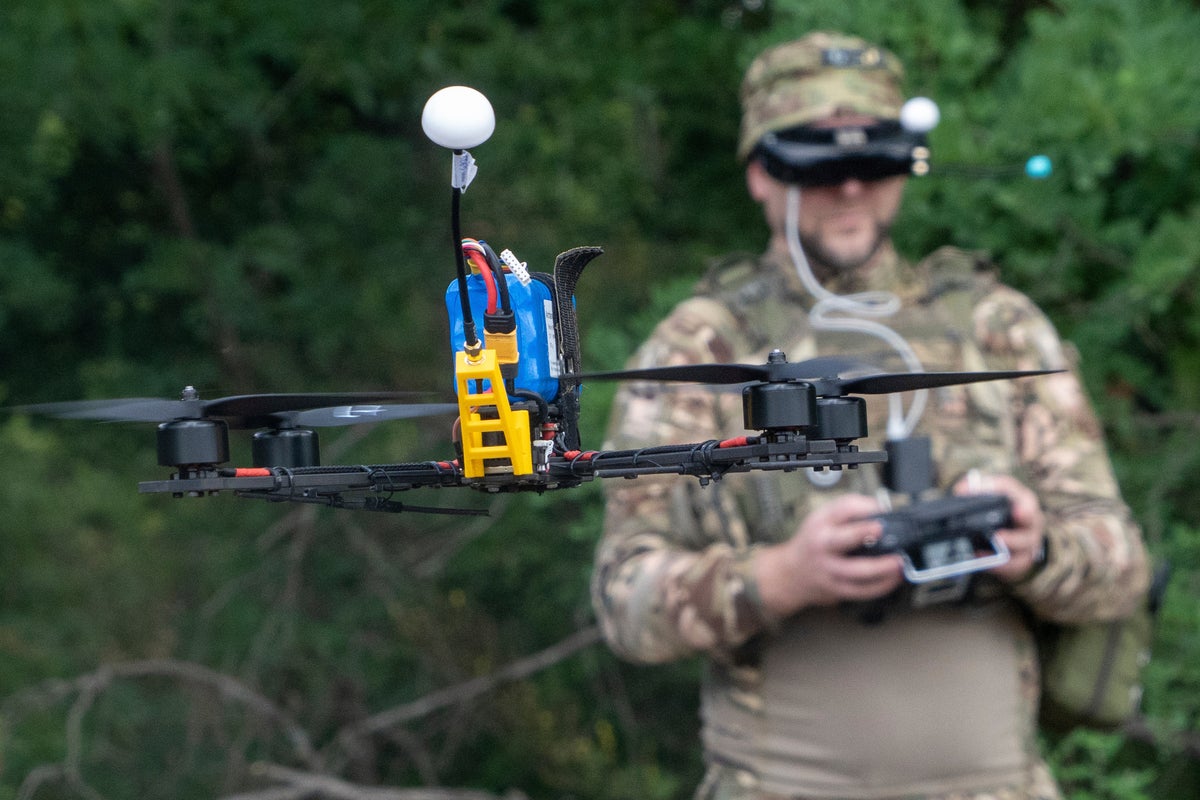World
Lithuania to Equip 7,000 Students with Drone Skills by 2028

Lithuania has announced an ambitious initiative to teach drone skills to approximately 7,000 school children by 2028. This program, spearheaded by the Ministry of National Defence, aims to enhance the country’s technological capabilities amid ongoing security concerns, particularly regarding threats from Russia.
According to Arvydas Anušauskas, Lithuania’s Minister of National Defence, the initiative is part of a broader effort to prepare the younger generation for potential challenges in the national security landscape. The program will integrate drone education into existing school curricula, allowing children to gain practical experience in operating these advanced technologies.
Focus on National Security and Technological Advancement
The decision to implement this educational initiative comes in response to heightened tensions in the region. Lithuania, a member of the NATO alliance, has been vigilant in addressing potential threats from neighbouring countries, particularly following Russia’s military actions in Ukraine. By equipping young students with drone operation skills, the Lithuanian government aims to foster a sense of responsibility and engagement with national defence.
The program will cover various aspects of drone technology, including flight operation, data collection, and the ethical implications of using drones. Anušauskas highlighted the importance of providing students with a comprehensive understanding of how drones can play a role in modern defence strategies.
Collaboration with Educational Institutions
To successfully implement this initiative, the Ministry of National Defence will collaborate with educational institutions across the country. Schools will receive the necessary resources and training to integrate drone technology into their teaching. This partnership is expected to create a robust framework for students to learn about and engage with technological advancements.
In addition to technical skills, the program aims to instill a sense of civic duty among students. By participating in this initiative, children will not only learn how to operate drones but also understand their utility in safeguarding national interests. The Lithuanian government envisions that this initiative will inspire the next generation to pursue careers in technology and defence.
As Lithuania navigates its position in a complex geopolitical landscape, initiatives like the drone education program reflect a proactive approach to ensuring national security. The focus on youth engagement in technology not only prepares students for future challenges but also reinforces the nation’s commitment to safeguarding its sovereignty.
This initiative marks a significant step in Lithuania’s educational policy, merging technology with national security in a way that engages and empowers young citizens. By 2028, the program aims to create a generation of informed individuals capable of contributing to the country’s defence strategies through advanced technological skills.
-

 Entertainment2 months ago
Entertainment2 months agoIconic 90s TV Show House Hits Market for £1.1 Million
-

 Lifestyle4 months ago
Lifestyle4 months agoMilk Bank Urges Mothers to Donate for Premature Babies’ Health
-

 Sports3 months ago
Sports3 months agoAlessia Russo Signs Long-Term Deal with Arsenal Ahead of WSL Season
-

 Lifestyle4 months ago
Lifestyle4 months agoShoppers Flock to Discounted Neck Pillow on Amazon for Travel Comfort
-

 Politics4 months ago
Politics4 months agoMuseums Body Critiques EHRC Proposals on Gender Facilities
-

 Business4 months ago
Business4 months agoTrump Visits Europe: Business, Politics, or Leisure?
-

 Lifestyle4 months ago
Lifestyle4 months agoJapanese Teen Sorato Shimizu Breaks U18 100m Record in 10 Seconds
-

 Politics4 months ago
Politics4 months agoCouple Shares Inspiring Love Story Defying Height Stereotypes
-

 World4 months ago
World4 months agoAnglian Water Raises Concerns Over Proposed AI Data Centre
-

 Sports4 months ago
Sports4 months agoBournemouth Dominates Everton with 3-0 Victory in Premier League Summer Series
-

 World4 months ago
World4 months agoWreckage of Missing Russian Passenger Plane Discovered in Flames
-

 Lifestyle4 months ago
Lifestyle4 months agoShoppers Rave About Roman’s £42 Midi Dress, Calling It ‘Elegant’









